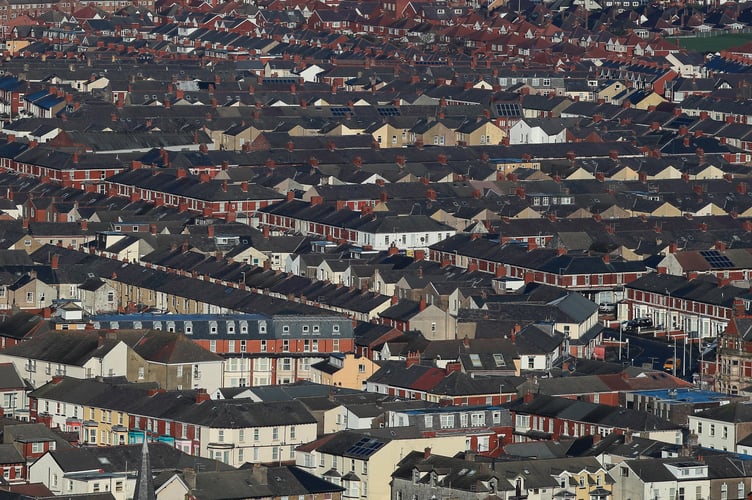Housing affordability in the Forest of Dean has worsened more than anywhere else in the South West over the last year, new figures show.
Figures from the Office for National Statistics show full-time employees in the Forest of Dean could expect to spend 9.4 times their annual earnings on purchasing a home in 2023 – close to the ratio of 8.9 times the year before.
It meant the average house price-to-earnings ratio in the Forest of Dean worsened more than anywhere else in the South West.
The Institute for Public Policy Research said the housing crisis is not only damaging lives but also holding the economy back and called for an increased investment in genuinely affordable homes.
Last year in England, a house cost 8.3 times the average wage, while the ratio stood at 6.1 in Wales – both slightly down from 8.5 and 6.4 respectively.
While this was the second consecutive fall since 2021, these are still higher than before the pandemic in 2019, when buyers spent 7.9 and 5.8 times their annual earnings.
Maya Singer Hobbs, senior research fellow at the IPPR, said: “The housing affordability crisis is damaging lives and holding back the economy. Its root cause is the failure to build enough homes across the country over several decades, including the failure to build enough genuinely affordable homes.”
She added: “To increase housing supply, and ensure homes are more affordable - whether to rent or buy - we need to reform and streamline the planning system, tackle our dysfunctional land market, and increase investment in genuinely affordable homes.”
Overall, housing affordability improved in three-quarters (75%) of local authorities across England and Wales in 2023, worsened in just under a quarter (24%) and remained the same in 1%, the ONS said.
In England, the average home sold for £290,000 in the 12 months to September, while the average full-time wage was £35,100.
Houses in the Forest of Dean were 5.9% more expensive in 2023 than the year before, at an average price of £291,000. In the meantime, wages remained unchanged at £31,000.
Cara Pacitti, senior economist at the Resolution Foundation, said: “Although house prices have stabilised in line with earnings since the pandemic, this does little to correct for the gap between earnings and house prices that has opened in the past 25 years.
“While earnings have doubled since 1997, house prices have increased four-and-a-half times.
“This means high barriers to homeownership for the UK’s renters, who are fully exposed to a housing market that offers the worst value for money of any advanced economy.
“The next Government needs to step up urgently to address the lack of affordable, good quality properties – including by building more new homes and modernising our existing housing stock.”
A spokesperson for the Department for Levelling Up, Housing and Communities said: “We are committed to creating a fair housing system that works for everyone, including increasing first-time buyer numbers in all regions and boosting availability of new, genuinely affordable housing.
“Over 876,000 households have been helped to purchase a home since spring 2010 through Government backed schemes including Help to Buy and Right to Buy.
“Our long-term plan for housing will go even further to build the homes that local communities want and need, backed by £10 billion to boost supply and £11.5 billion for affordable homes.”




